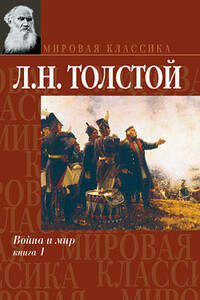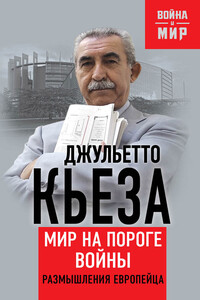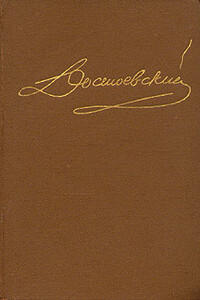|
| "Well, my dear fellow, tomorrow we are off at last," said Prince Vasili one day, closing his eyes and fingering Pierre's elbow, speaking as if he were saying something which had long since been agreed upon and could not now be altered. | - Ну, мой друг, завтра мы едем, наконец, - сказал он ему однажды, закрывая глаза, перебирая пальцами его локоть и таким тоном, как будто то, что он говорил, было давным-давно решено между ними и не могло быть решено иначе. |
| "We start tomorrow and I'm giving you a place in my carriage. | - Завтра мы едем, я тебе даю место в своей коляске. |
| I am very glad. | Я очень рад. |
| All our important business here is now settled, and I ought to have been off long ago. | Здесь у нас всё важное покончено. А мне уж давно бы надо. |
| Here is something I have received from the chancellor. | Вот я получил от канцлера. |
| I asked him for you, and you have been entered in the diplomatic corps and made a Gentleman of the Bedchamber. | Я его просил о тебе, и ты зачислен в дипломатический корпус и сделан камер-юнкером. |
| The diplomatic career now lies open before you." | Теперь дипломатическая дорога тебе открыта. |
| Notwithstanding the tone of wearied assurance with which these words were pronounced, Pierre, who had so long been considering his career, wished to make some suggestion. | Несмотря на всю силу тона усталости и уверенности, с которой произнесены были эти слова, Пьер, так долго думавший о своей карьере, хотел было возражать. |
| But Prince Vasili interrupted him in the special deep cooing tone, precluding the possibility of interrupting his speech, which he used in extreme cases when special persuasion was needed. | Но князь Василий перебил его тем воркующим, басистым тоном, который исключал возможность перебить его речь и который употреблялся им в случае необходимости крайнего убеждения. |
| "Mais, mon cher, I did this for my own sake, to satisfy my conscience, and there is nothing to thank me for. | - Mais, mon cher, [Но, мой милый,] я это сделал для себя, для своей совести, и меня благодарить нечего. |
| No one has ever complained yet of being too much loved; and besides, you are free, you could throw it up tomorrow. | Никогда никто не жаловался, что его слишком любили; а потом, ты свободен, хоть завтра брось. |
| But you will see everything for yourself when you get to Petersburg. | Вот ты всё сам в Петербурге увидишь. |
| It is high time for you to get away from these terrible recollections." Prince Vasili sighed. "Yes, yes, my boy. | И тебе давно пора удалиться от этих ужасных воспоминаний. - Князь Василий вздохнул. -Так-так, моя душа. |
| And my valet can go in your carriage. | А мой камердинер пускай в твоей коляске едет. |
| Ah! I was nearly forgetting," he added. "You know, mon cher, your father and I had some accounts to settle, so I have received what was due from the Ryazan estate and will keep it; you won't require it. | Ах да, я было и забыл, - прибавил еще князь Василий, - ты знаешь, mon cher, что у нас были счеты с покойным, так с рязанского я получил и оставлю: тебе не нужно. |
| We'll go into the accounts later." | Мы с тобою сочтемся. |
| By "what was due from the Ryazan estate" Prince Vasili meant several thousand rubles quitrent received from Pierre's peasants, which the prince had retained for himself. | То, что князь Василий называл с "рязанского", было несколько тысяч оброка, которые князь Василий оставил у себя. |
| In Petersburg, as in Moscow, Pierre found the same atmosphere of gentleness and affection. | В Петербурге, так же как и в Москве, атмосфера нежных, любящих людей окружила Пьера. |
| He could not refuse the post, or rather the rank (for he did nothing), that Prince Vasili had procured for him, and acquaintances, invitations, and social occupations were so numerous that, even more than in Moscow, he felt a sense of bewilderment, bustle, and continual expectation of some good, always in front of him but never attained. | Он не мог отказаться от места или, скорее, звания (потому что он ничего не делал), которое доставил ему князь Василий, а знакомств, зовов и общественных занятий было столько, что Пьер еще больше, чем в Москве, испытывал чувство отуманенности, торопливости и всё наступающего, но не совершающегося какого-то блага. |










